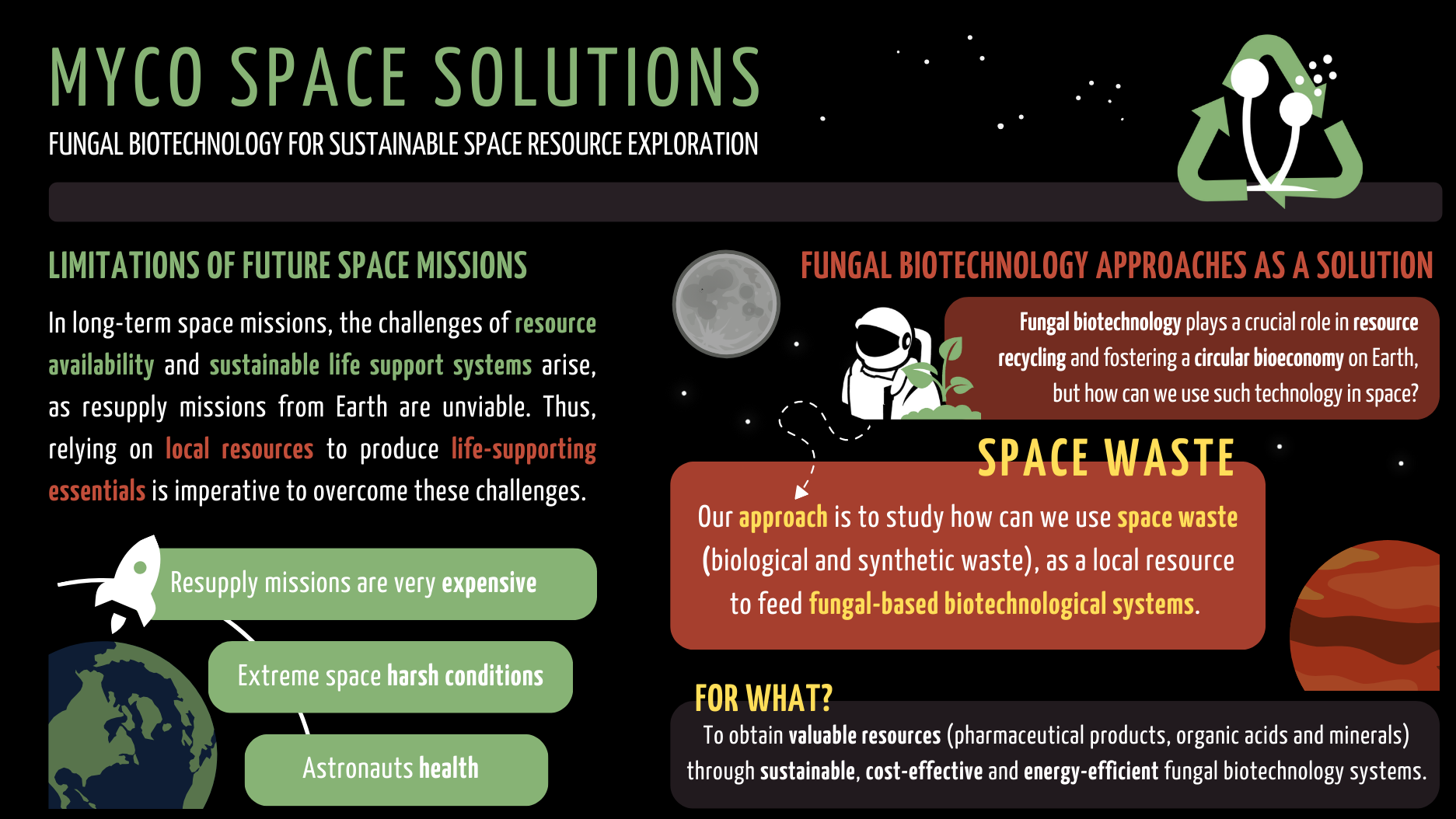Duration: 36 months
As we get closer to establishing a permanent human presence on the Moon and Mars, the necessity for Sustainable Life Support Systems (SLSS) becomes critical, and integrating biotechnology techniques that rely on utilizing locally available resources is imperative to enhance self-sufficiency and resilience in long-term space missions. One promising novel approach involves using filamentous fungi that can thrive on locally available nutrients, thus reducing power demand and launch volume. Filamentous fungi have proven their value on Earth, by contributing significantly to resource exploration and a circular bioeconomy by extracting metals, producing pharmaceuticals, removing environmental toxins, and providing valuable nutrition sources. Furthermore, their proof-of-concept role for space application has been demonstrated. For example, the species Aspergillus niger and Penicillium simplicissimum demonstrated their capacity to perform biomining on lunar regolith simulant and meteoritic materials, including on the International Space Station. They can thrive in space microgravity conditions, and preliminary results suggest that using space waste as a nutrient source promotes their growth and the production of organic acids - in turn, relevant for biotechnology applications. Therefore, expanding our comprehension of fungal biotechnology opens exciting possibilities and applications for promoting the sustainability and self-sufficiency of space missions. This PhD project aims to 1) understand how fungi can aid space exploration and 2) how they could rely on local waste resources as nutrient sources, by developing a waste resource-efficient set-up for fungal biotechnology applications. This project is divided into 4 major work packages and combines a multidisciplinary approach that is essential to fully understand and optimize the waste resource set-up, which will consequently unlock efficient techniques for locally obtaining essential resources in future space exploration.

